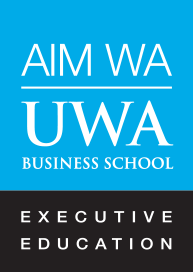

Advanced Negotiation in Practice
This distinctive program offers you insights into how negotiations work in practice and – through personal coaching – uncover ways to enhance your own negotiating skills. The focus of the program throughout is on helping you to identify what you can do differently to improve your skill at work-related negotiations.
2 Days
Overview
Effective negotiation involves developing a process that leads to constructive outcomes. This program combines the negotiation and research expertise of Professor Ray Fells from the UWA Business School with the coaching and role playing expertise of ‘The Experience Lab’, a team of improvisation actors who are skilled in coaching individuals to maximise their impact.
You'll gain a practical understanding of how agreements are reached, what needs to be done to move the process forward without losing sight of your goals. Core principles of preparation lay the foundation for a negotiation.
You will see how to build a process of understanding the scope of the parties’ differences, create space for value-creating solutions and handle the trade-offs. Even getting stuck in a negotiation can be turned around into an opportunity.
What makes this program particularly worthwhile is the coaching you will receive as you participate in realistic role play negotiation simulations. How we present to the other party – the biases we display, the tone of our voice, our reactions to what the other party is saying – all have a significant impact on how the negotiations subsequently unfold and therefore the outcomes we achieve. We are often unaware of the effect our actions and words have which is why receiving considered feedback is so valuable.
The program culminates in a substantial negotiation simulation in which ‘The Experience Lab’ team will challenge, guide and coach you to develop and improve your practical negotiating skills.
Who will benefit
This program is highly beneficial for those whose roles involve negotiation and achieving the agreement of others, whether in formal negotiation settings such as procurement or enterprise bargaining, or in less formal settings such as leading an organisational change process or working in dynamic teams.
Content
Learning Outcomes
About the negotiation process:
- Develop a practical understanding of the dynamics of negotiation including critical elements such as the role of power and trust
- Learn the skills that lead to better outcomes: handling information; solution seeking; managing concessions
- Be more aware of strategic thinking with tools that enable them to become proactive rather than a reactive negotiator
- Receive personalised feedback to help develop their negotiating strengths and manage their negotiation blind spots
- Understand how a reflective practice approach will enable them to continue improving their negotiation effectiveness long after the course has finished.
Presenter
Professor Ray Fells and The Experience Lab
About the Facilitator
Professor Ray Fells
Ray gained experience in as an industrial relations conciliator in the U.K. helping managements and unions resolve their disputes. This gave him a very practical perspective on how to best negotiate and achieve constructive outcomes. On coming to Australia and finding himself in academia he maintained this practical orientation in his research and in teaching others how to improve their negotiating skills. His research into the process of negotiation has been published internationally and his book ‘Effective Negotiation’ is now in its fourth edition. He now focuses his teaching and research on how to negotiate effectively in the business context.
Ray has developed and taught successful courses in workplace relations and negotiation in universities and as a consultant. He currently teaches on MBA programs in Sydney and Copenhagen as well as at UWA and continues to give advice to parties about managing their negotiations.
The Experience Lab
The Experience Lab provides actors to enhance your training days by infusing them with practical activities - helping you to embed the learning from the classroom and allowing you to experience what utilising your new skills feels like.
Whether it is creating a memorable end to your day or integrating more fully into your course to provide different learning experiences - The Experience Lab tailor activities to put the theory into practice. Some of the services the lab provides are as follows:
- Realplayers
- Simulations
- Skill Building
- Theatre Based Training.
What past course attendees say:


Designed specifically for MBA graduates. This executive education program will rejuvenate Alumni of MBA programs’ knowledge and skills by providing an update on current literature, methodologies and the practical application of cutting-edge thinking.
The Strategic Development Program for Not-for-Profit Organisations (SDP-4-NFP) focuses on how organisations can configure their business models and shape corporate strategy to address the challenges of what is a dynamic and more uncertain environment. It applies theory and industry best practice to your organisational realities.
This comprehensive program focuses on the sustainability, performance, and resilience of co-operative and mutual organisations. It allows for a deep dive into the individual issues and opportunities that you and your organisation face.
This program is based on world’s best practice in developing high performance teams and working environments. The principles that underpin this program have been delivered to leaders and organisations in over thirty countries. Participants can expect to deepen their creative, analytical, practical, and emotional abilities.
 (08) 9383 8000
(08) 9383 8000